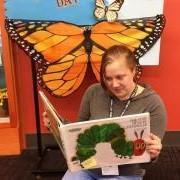Philosophy
Ungrateful mammals
Dave Eggers
741.973 /Eggers
Humor, Animals, Philosophy, Art / Art History
Before he embarked on his writing career, Dave Eggers was classically trained as a draftsman and painter. He then spent many years as a professional illustrator and graphic designer before turning to writing full-time. More recently, in order to raise money for ScholarMatch, his college-access nonprofit, he returned to visual art, and the results have been exhibited in galleries and museums around the country. Usually involving the pairing of an animal with humorous or Biblical text, the results are wry, oddly anthropomorphic tableaus that create a very entertaining and eccentric body of work from one of today's leading culture makers.
Awaken your genius : escape conformity, ignite creativity, and become extraordinary
Ozan O. Varol
153.42 /Varol
Self Help, Philosophy
"From the critically acclaimed author of Think Like a Rocket Scientist comes a simple process for discarding obsolete beliefs and cultivating independent thought. A rare handful of leaders, artists, scientists, and entrepreneurs seem to have Teflon in their heads. They think and act with genuine independence, offering up ideas and insights direct from the subtle workings of their own minds. No matter how far that might take them from their social or political group. We sometimes call these people geniuses, as if they're another breed. But genius doesn't have to belong to just a few people--it can be cultivated. Great thinkers operate unconstrained by the opinions of others--or their own past opinions. They can act on new information regardless of the beliefs they once held, or identities they once adopted. They distinguish fact from manipulation. And just as importantly, they act first instead of reacting--creating new ideas and opportunities for themselves and others. This is a book for aspiring universe-denters: executives and entrepreneurs, activists and artists, individuals who want to escape groupthink, discard obsolete and harmful beliefs, generate breakthrough ideas, spot hidden opportunities, and flourish in a world of ever-increasing manipulation, change, and challenge. In short, it's a book for geniuses"--
Having been a reader of his blog posts for quite some time there was lot that was familiar in this book but also a lot that is new. My main takeaways relate to reframing the way I think and approach problems and other things that tend to pop up. Pretty inspiring, I've already been applying some of the strategies noted, and I would further recommend following up the supplement "homework" web-link he provides to keep the reframing effort moving forward. -Paul
Distilled genius : a collection of life-changing quotations
Susan Branch
808.882 /Branch
Nonfiction, Philosophy
This collection contains some of Branch's favorite quotes, with words of wisdom from Mark Twain to Anne Frank, from Marcus Aurelius to Rosa Parks, from the Bhagavad Gita to the Bible, and many more.
It's been a while since I picked up a book of quotations. I did not check it out because I needed some words of wisdom. I checked it out because it's a lovely book, a visual walk through the park feeling the sunshine on your face. With a beautiful color palette and handwriting fonts, this book is easy to skip around in for an easy smile. "So come with me where dreams are born and life is never planned." --page 163, J.M. Barrie, creator of Peter Pan. -Melody
The swerve : how the world became modern
Stephen Greenblatt
940.21 /Greenblatt
Nonfiction, History, Philosophy, Biographies
In this work, the author has crafted both a work of history and a story of discovery, in which one manuscript, plucked from a thousand years of neglect, changed the course of human thought and made possible the world as we know it. Nearly six hundred years ago, a short, genial, cannily alert man in his late thirties took a very old manuscript off a library shelf, saw with excitement what he had discovered, and ordered that it be copied. That book was the last surviving manuscript of an ancient Roman philosophical epic, On the Nature of Things, by Lucretius, a beautiful poem of the most dangerous ideas: that the universe functioned without the aid of gods, that religious fear was damaging to human life, and that matter was made up of very small particles in eternal motion, colliding and swerving in new directions. The copying and translation of this ancient book, the greatest discovery of the greatest book-hunter of his age, fueled the Renaissance, inspiring artists such as Botticelli and thinkers such as Giordano Bruno; shaped the thought of Galileo and Freud, Darwin and Einstein; and had a revolutionary influence on writers such as Montaigne and Shakespeare and even Thomas Jefferson.
I'm a little late to this book, but I am so glad that I am reading it (on the recommendation of Natalie Haynes, for you podcast lovers!). This book so eloquently relays an important aspect of the humanism movement--that of finding and preserving and making known again--works from the Romans and Greeks. In this case, our questing hero goes by the name of Poggio, and he re-discovers a text by the Roman thinker Lucretius, who had been heavily influenced by Greek philosopher Epicurus. It's a layer cake of scrumptious meditation on how to live, combined with juicy details of the lives of Romans and Florentines--a real treat! -Candice
Why Buddhism is true : the science and philosophy of meditation and enlightenment
Robert Wright
294.342 /Wright
Nonfiction, Self Help, Health, Science, Philosophy
Author Robert Wright shows how Buddhist meditative practice can loosen the grip of anxiety, regret, and hatred, and deepen your appreciation of beauty and other people. -- Adapted from book jacket.
A fantastic look at the scientific aspects of Buddhism, specifically mindfulness meditation. -Mykle
The bullet journal method : track the past, order the present, design the future
Ryder Carroll
640.43 /Carroll
Self Help, Philosophy
For years Carroll tried countless organizing systems, online and off, but none of them fit the way his mind worked. He developed the Bullet Journal, and it helped him become consistently focused and effective. Now he shows readers how the Bullet Journal method can help you weed out distractions and focus your time and energy in pursuit of what's truly meaningful, in both your work and your personal life. -- adapted from back cover
The Bullet Journal Method is a great way to get organized as we move into 2021. I'm so glad I've re-read it throughout this year, and am heading back to tackle a few sections once more before the New Year. -Casey
Love, Z
Jessie Sima
jE Sima
Picture Books, Fantasy, Travel, Adventure, Philosophy, LGBTQ+
A little robot named Z finds a message in a bottle signed, "Love, Beatrice" and, unable to learn what love is from other robots, sets out on a quest to find the answer.
Z sets out on a quest to find out what "love" is. On the journey Z might just find a place in your heart. -Casey
Spiritual guides : pathfinders in the desert
Fred R. (Fred Reinhard) Dallmayr
230 /Dallmayr
Religion, Philosophy
"In Spiritual Guides: Pathfinders in the Desert, Fred Dallmayr challenges the "desert character" of modern culture. Political and economic corruption, incessant warmongering, spoliation of natural resources, and, above all, mindless consumerism and greedy self-satisfaction are all symptoms of what he contends is an expanding wasteland or desert where everything creative and nourishing decays and withers. Through an alternative interpretation of Nietzsche's saying "the desert grows," this book calls for spiritual renewal, invoking in particular four prominent guides or pathfinders in the desert: Paul Tillich, Raimon Panikkar, Thomas Merton, and Pope Francis. What links all four guides together is the view of spiritual life as an itinerarium, a pathway along difficult and often uncharted roads."
Thoughtful advice from four prominent thinkers, about cultivating and protecting spirituality in a world that can seem overly-consumerist and bereft at the same time. -Candice
Do nothing & do everything : an illustrated new Taoism
Qiguang Zhao
299.514 /Zhao
Philosophy
"This introduction to ancient Taoism utilizes stories and illustrations to convey the subtle ideas that go beyond language as the author applies the Taoist Wu Wei (do nothing) and Wu Bu Wei (do everything) to modern life"--Provided by publisher.
This book is a very interesting introduction to Taoist philosophy. It has pictures too! It's very fun to read, and provides plenty to think about. -Heidi K







A fun, amusing, and quick read! I didn't know Dave Eggers was an illustrator and graphic designer before turning to writing — it's inspiring to know that all art can fuel other forms of art. Give this flip through before seeing him in conversation at the Englert on Thursday, March 7! -Annie